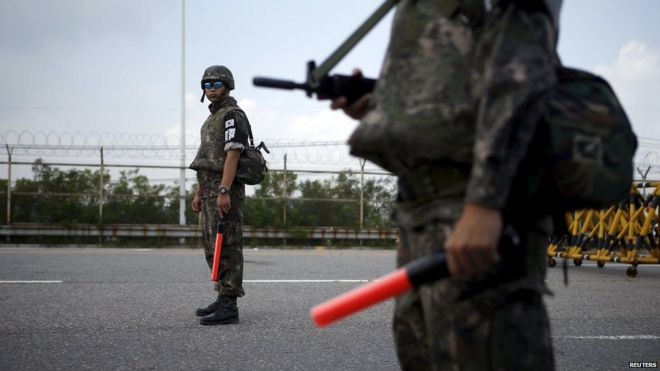
North and South Korea are holding top-level talks amid growing tension, the South's Unification Ministry told Yonhap news agency.
Senior aides to the two countries' leaders met at the Panmunjom truce village on the border, reports said.
North Korea had threatened "strong military action" if the South did not stop border loudspeaker broadcasts.
Following an exchange of fire on Thursday, North Korea declared a "semi-state of war", state media reported.
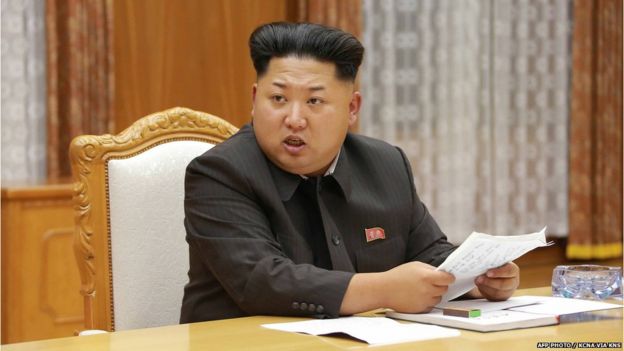
No media organisations are present at the talks, which took place inside the demilitarised zone which divides the two Koreas.
South Korea said ahead of the talks that it would be represented by national security adviser Kim Kwan-jin and Unification Minister Hong Yong-pyo, and the North would send senior officials Hwang Pyong-so and Kim Yong-gon.
Mr Hwang is seen by many analysts as North Korean leader Kim Jong-un's second-in-command.
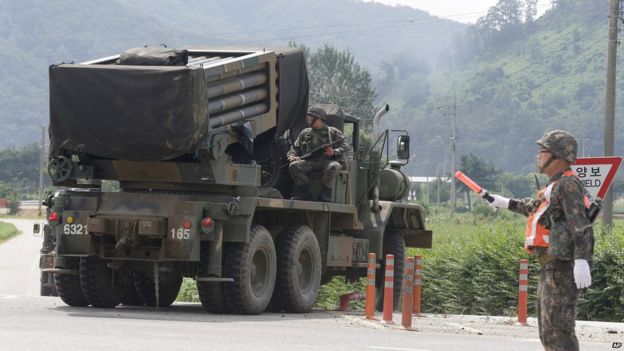
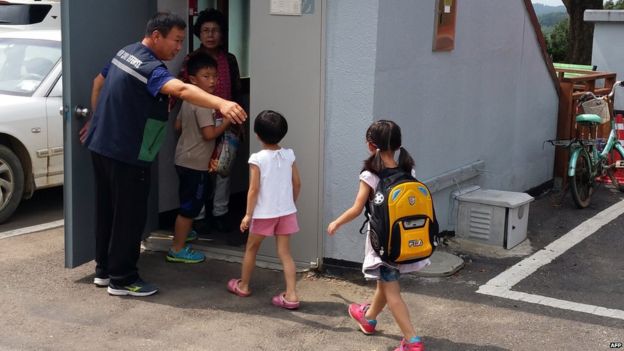
North Korea had earlier issued a deadline for the dismantling of banks of loudspeakers, which have been blasting news bulletins, weather forecasts and music from the South. It had moved artillery into positions to fire on them.
South Korea has evacuated almost 4,000 residents from border areas and warned that it would "retaliate harshly".

Analysis: Steve Evans, BBC Korea correspondent
Each side is represented by two members of the inner circle of the leaderships in Pyongyang and Seoul.
The difficulty is that they cannot even agree on the facts of the events which led to the current state of heightened tension.
It started when two South Korean soldiers were seriously injured by land-mines in the so-called Demilitarized Zone between the two countries.
South Korea said North Korea planted the mines; North Korea said that was absurd.
Both sides say the other then fired the first shot in the artillery barrages.
The talks will not diminish the fierceness of the rhetoric between the two halves of Korea, but they may find a way for both sides to walk away safely from a dangerous situation before it explodes.
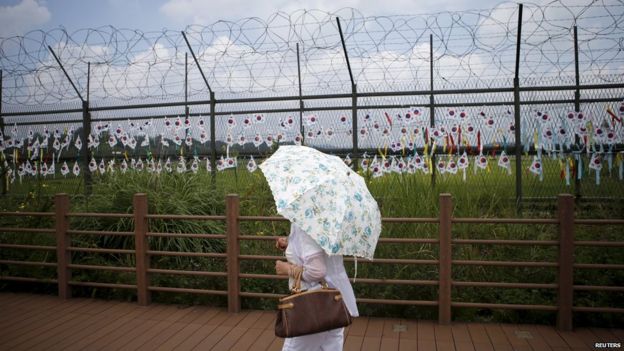

US and South Korean fighter jets have been flying in formation near the border.
The US's top military officer has reaffirmed his country's "unwavering commitment" to South Korea's defence in a phone call to his South Korean counterpart.
Chairman of the Joint Chiefs of Staff Gen Martin Dempsey and South Korea's Admiral Choi Yoon-hee agreed they would "ensure that the US and [South Korea] continue to work closely with one another to deter further North Korean provocations and defuse tensions," a Pentagon statement said.
The two Koreas remain technically at war, because the 1950-1953 conflict ended in an armistice, not a peace treaty.

Loudspeakers and psychological warfare
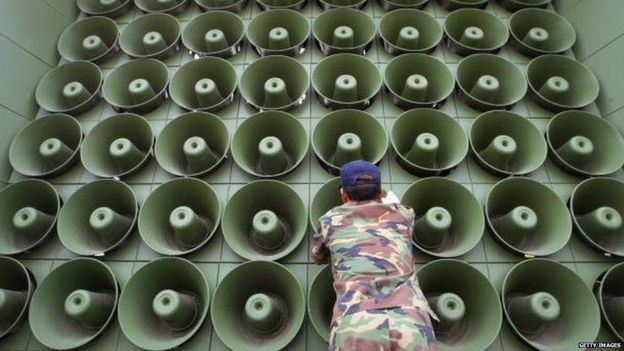
In 2004, South Korea and North Korea reached an agreement to dismantle their propaganda loudspeakers at the border.
The broadcasts were part of a programme of psychological warfare, according to South Korean newspaper Korea Times, to deliver outside news so that North Korean soldiers and border-area residents could hear it.
On 10 August this year, South Korea restarted broadcasting in an apparent reaction to two South Korean soldiers being injured in a landmine explosion in the demilitarised zone that was blamed on the North.
Military authorities say days later the North also restarted its broadcasting of anti-South propaganda.
However, some reports said that the quality of the North Korean loudspeakers is so bad that it is difficult to understand what they are saying.
The South had previously threatened to restart broadcasts in 2010 but although the loudspeakers were reinstalled at that time, they were not put into use, with the South using FM broadcasts into the North instead.
No comments:
Post a Comment